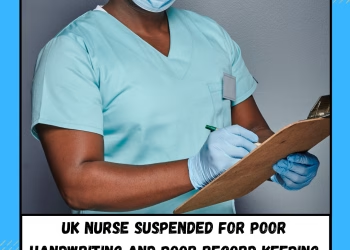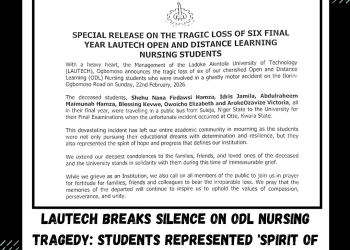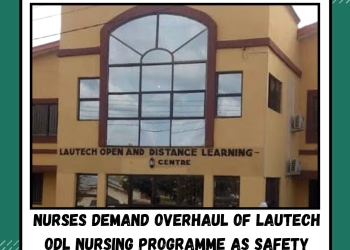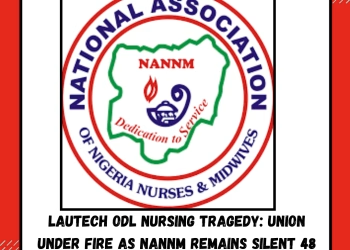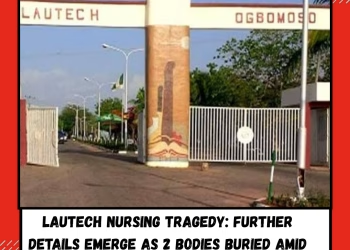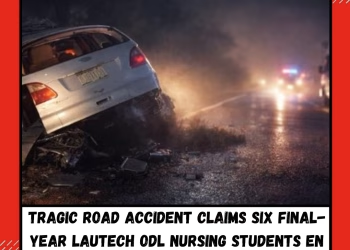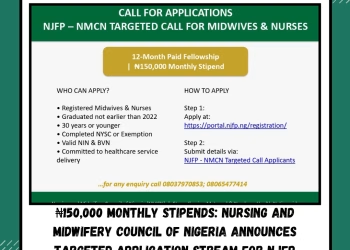
Breaking: Nigerian Nurse’s Fundraising Appeal Turns to Heartbreak as Scam Allegations Emerge
By Fellow Nurses Africa Editorial Team
Fellow Nurses Africa Blog
12 November 2025
A story that began with hope and solidarity has ended in disbelief and disappointment for hundreds of nurses and well-wishers across Nigeria. Imoh Ben David, a newly qualified midwife once celebrated as a rising star in his class, now faces accusations of misleading the very community that rushed to save him.
What started as a desperate plea for help after a road accident in September quickly spread across nursing WhatsApp groups, Facebook pages, and our own Fellow Nurses Africa platforms. We shared David’s story in good faith—his classmates had reached out, distraught, asking for prayers and support. The post went viral. Messages poured in: “We’re with you, brother.” “No amount is too small.” Nurses on night shifts sent ₦500. Students gave their transport money. Strangers in the diaspora wired thousands. Everyone wanted David to walk again.
But in the last two weeks, the truth has unravelled—and it hurts.
A Real Accident, a Fabricated Crisis
On 1 September, David was in a bus crash on the Ilu Abo–Akure road. The vehicle carried 18 passengers. Several people died. David was found unconscious, bleeding, and was rushed to hospital by a passer-by. He was later moved to the University of Ilorin Teaching Hospital (UITH) with a diagnosed multi-segmental fracture and sacral plexus injury—serious, yes, but treatable.
🌍 Join the Largest African Nursing Community! 🌍
The medical bill was quoted at ₦8–10 million. Over ₦2.2 million had already been paid. That much was true.
What came next was not.
The Appeal That Touched Thousands
A flyer appeared: “Help David Walk Again.” It showed a young man in a hospital gown, tubes in his arms, eyes closed in pain. The text spoke of a nurse who couldn’t breathe without oxygen, who hadn’t eaten in days, who faced permanent paralysis without urgent surgery. “The hospital has stopped treatment,” it said. “Please, help him regain himself.”
We posted it. You shared it. TikTok videos with #HelpDavidWalk01 racked up views. A GoFundMe page—Medical Appeal for Ben David Obong—went live with a scannable QR code. Two phone numbers were given for direct transfers. Within days, the story was everywhere.
And the money came.
When Doubt Crept In
By late October, something felt wrong.
A classmate trying to visit David at UITH couldn’t find him. Another called the numbers—no answer. A senior nurse asked for a doctor’s update and got silence. One message in a nursing group read:
“He’s not picking his own calls anymore. I’m trying to reach his family.”
On 30 October, a colleague who had helped coordinate the appeal sent a long voice note that spread quietly through trusted circles:
“We sent someone to Ilorin today. David has left the hospital. No one knows exactly when or why. The symptoms don’t match the injury. There was never a surgery scheduled. We are pausing everything until we know the truth.”
The Truth
There was no life-saving operation.
There was no oxygen dependency.
There was no ₦10 million bill hanging over his head.
The accident happened. The injuries were real—but far less severe than claimed. David, it now appears, took a genuine misfortune and turned it into a script for sympathy. The photos, the updates, the hospital letters—some were altered, others invented.
The money? No one knows exactly how much was raised. But nurses who gave ₦1,000 here, ₦5,000 there, now realise it didn’t go to medicine. It went into someone’s pocket.
A Community in Pain
This isn’t just about money. It’s about trust.
We are the ones who stay after shifts to buy drugs for patients who can’t pay. We are the ones who crowdsource for a colleague’s child with sickle cell. When one of us falls, we all lift.
And now, one of us has let us down.
David was a top student. He wore his uniform with pride. He represented his set at conferences. Many who gave knew him—or knew someone who did. That makes this sting deeper.
What Happens Next
- Donors: If you gave via GoFundMe, contact their trust and safety team with proof of donation. Refunds are possible in fraud cases.
- Local transfers: Report to your bank and consider a police complaint. The EFCC has a cybercrime desk.
- The Nursing Council: David’s licence is under review. Practising under false pretences violates the code of conduct.
David has not responded to messages. His phone remains off. His classmates are silent—some out of shame, others out of anger.
A Message to Every Nurse Reading This
Give. Always give. But verify.
Ask for:
- The doctor’s name and direct hospital line
- A current photo from the ward
- A signed medical report
- Permission to visit
One extra phone call can save your money—and your heart.
We shared David’s story because we believed in him. We are sharing this update because we believe in you.
If you were affected, write to us at Fellownursesafrica@gmail.com**. You’re not alone.
🌍 Join the Largest African Nursing Community! 🌍
Fellow Nurses Africa is the independent voice of African nursing, we educate, inform and support nurses across Africa

